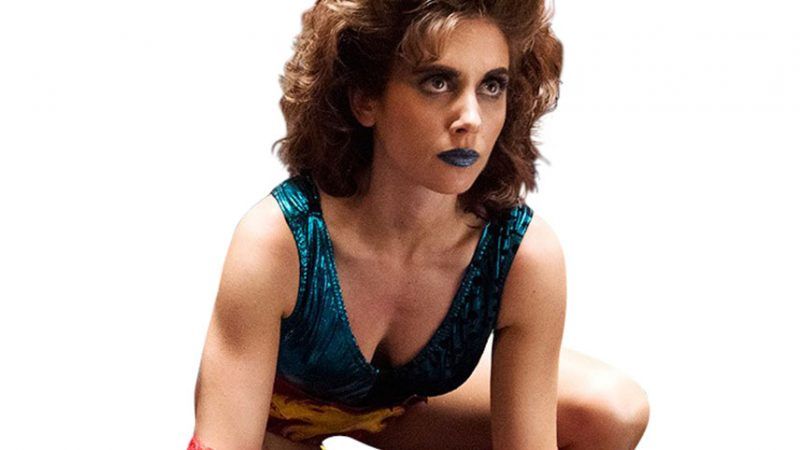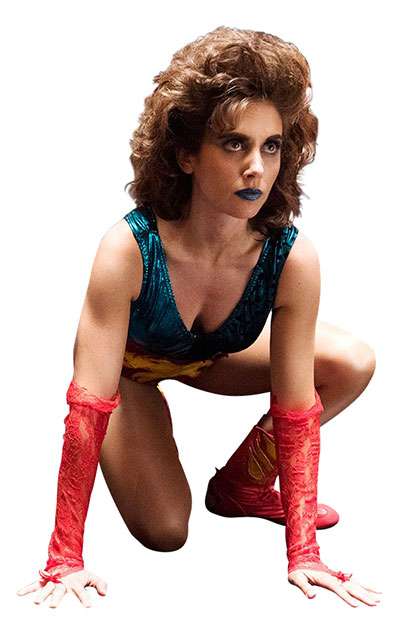GLOW


Netflix has gotten so consistently good at original programming that cable-cutters can get jaded. But GLOW—starring Alison Brie of Community, Betty Gilpin of Law & Order: SVU, and curmudgeonly comedian Marc Maron—has brought crowds of streamers to their feet.
The 10-episode series dramatizes the birth of the real-life Gorgeous Ladies of Wrestling, the first all-female professional wrestling company with staying power. Started in 1986, GLOW put women in the ring at a time when they mostly served as arm candy for male stars in the World Wrestling Federation. This dramatization focuses on fleshing out the ambitions of characters who can't otherwise find gratifying work in 1980s Hollywood.
Brie's Ruth Wilder kicks off the first episode by bombing an audition in which she intentionally reads the man's part, because it's more interesting than the secretarial role for which she's trying out. Gilpin's Debbie Eagan is an ex-soap opera star who's been written off her daytime drama after getting pregnant. The two former friends are reunited by Maron's Sam Sylvia, a B-grade horror movie impresario who gets into pro wrestling for financial reasons, and then discovers it's a perfectly good storytelling vehicle.
Female casts still tend to be confined to the shallows of reality TV, but Brie and company demonstrate what the original GLOW did in 1986: that a mostly female cast can carry off almost everything a male one can, and that there's no better place to do so than a market economy in which women are free to clobber each other on camera and the rest of us are free to pay to watch.
This article originally appeared in print under the headline "GLOW."
Editor's Note: As of February 29, 2024, commenting privileges on reason.com posts are limited to Reason Plus subscribers. Past commenters are grandfathered in for a temporary period. Subscribe here to preserve your ability to comment. Your Reason Plus subscription also gives you an ad-free version of reason.com, along with full access to the digital edition and archives of Reason magazine. We request that comments be civil and on-topic. We do not moderate or assume any responsibility for comments, which are owned by the readers who post them. Comments do not represent the views of reason.com or Reason Foundation. We reserve the right to delete any comment and ban commenters for any reason at any time. Comments may only be edited within 5 minutes of posting. Report abuses.
Please to post comments


Female casts still tend to be confined to the shallows of reality TV, but Brie and company demonstrate what the original GLOW did in 1986: that a mostly female cast can carry off almost everything a male one can, and that there's no better place to do so than a market economy in which women are free to clobber each other on camera and the rest of us are free to pay to watch.
GLOW was markedly worse about the "eye candy" nonsense than the major companies were at the time. Ask former workers (most notably, Lisa Moretti who later joined the WWF/E) about what a shitball company GLOW was. They simply took models, gave them exceptionally rudimentary training, and then had them perform horrendously in the ring. David McLane, who ran GLOW, was one of the sleazier people in history.
If the goal was to show that women could do what the men did in the 1980's, a show focusing on the Japanese promotions would've demonstrated that. The movie Gaea Girls showed the intense training that Japanese women wrestlers went through and they actually were quite better than a lot of the men.